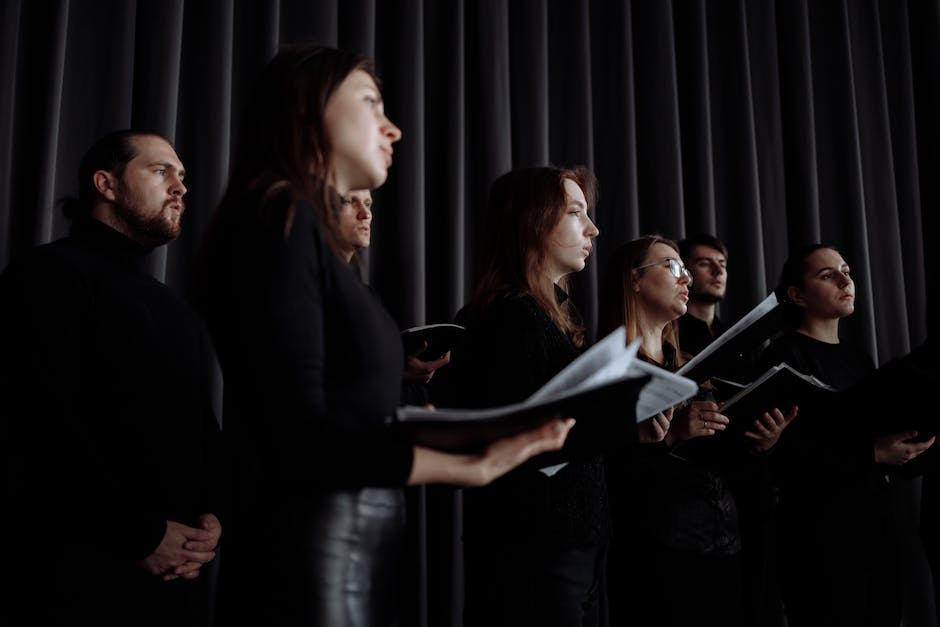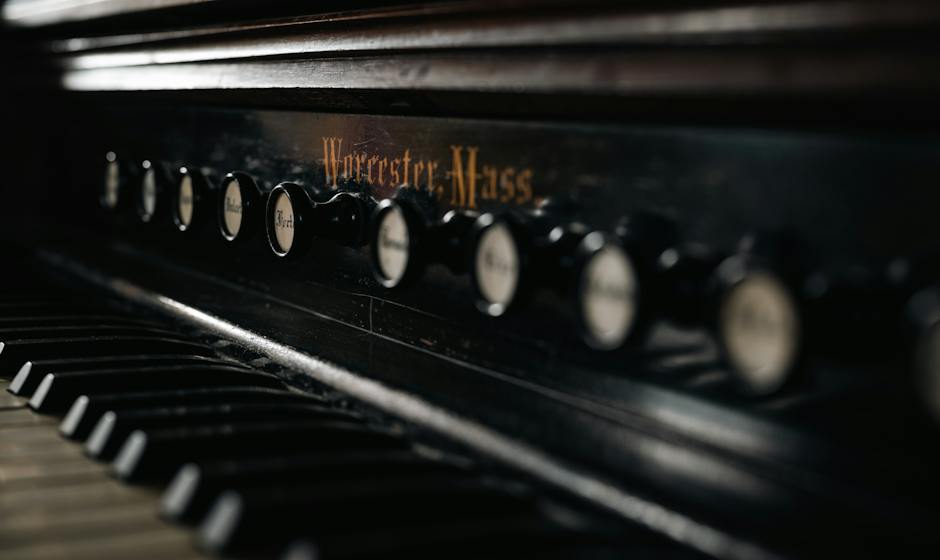Gospel music, renowned for its soul-touching melodies and exuberant harmonies, has been integral to the American cultural tapestry, echoing the shared experiences and resilient spirit of its African-American originators. Chicago holds a distinct position in this rich narrative, being recognized as America’s ‘Gospel Music Capital’. The transformation of gospel music from local church choirs to the global stage strongly resonates with Chicago’s own evolution, deeply intertwined with the rise of the genre. This undertaking explores the origins and unfoldment of Chicago’s Gospel Music, its pivotal personalities and institutional influencers, and the international influence it has garnered over decades.
Origins and Evolution of Chicago’s Gospel Music
Let the needle drop, the amplifiers roar and allow the melodies to rush in on a cascade of soul-stirring rhythms that catch breaths and hearts alike. We find ourselves on a sonic quest to discover the roots of a genre that has been the very pulse of American music for decades. We are talking about Gospel music – an art form that goes beyond entertainment, serving as a beacon of hope, a testament of resilience, and a vehicle of spiritual expression. The question we’re carrying ourselves on this rhythm-infused journey is this – “How did Chicago become the hotbed of Gospel music in America?”
The Windy City, as Chicago is often referred to, has been a nexus of music innovation that has pushed boundaries time and again. In the grand, sweeping concertos of American musical history, Chicago holds a key signature all its own, especially when it comes to Gospel music. To understand this phenomenon, let us hike back to the Great Migration.
In the early 20th century, millions of African Americans moved from the Southern rural areas to Chicago, seeking better economic opportunities and an escape from relentless oppression. They didn’t just bring their hopes and dreams, they brought their blues, their jazz, and most critically – their Gospel.
Gospel music, deeply entrenched in the contours of African American religious life, was met with a humming city ready to amplify its sound. In the profound echoes of Chicago churches, Gospel music found the perfect breeding ground. It was here that Thomas A. Dorsey, now celebrated as the ‘Father of Gospel Music’, transformed grief into a genre-defining composition, ‘Take My Hand, Precious Lord.’ His pioneering work, aligning traditional hymns with blues tunes and jazz rhythms, were epitomised by Chicago’s particular cultural fusion.
A significant and unignorable catalyst in this genesis was the Gospel Caravan, a traveling Gospel talent showcase that sought to deliver God’s message through music. Chicago was an essential hub for these concerts, serving as the birthplace of many Gospel legends like Mahalia Jackson, who often electrified the audiences with her furious spirit and profoundly poignant voice.
Radio played a critical role in giving Gospel music wings in Chicago. ‘Negro Gospel Singing’ was a popular segment on several radio stations, bringing the enchanting performances of the Gospel caravan right into living rooms across the city, thereby transforming Chicago into a pulsating sanctuary of Gospel music.
On these hallowed stages and in the sacred confines of Chicago churches, Gospel music flourished. It rose to the pinnacles of popularity and influence, adorning itself with the sky-reaching refrains and foot-stomping rhythm that have since become its identifying marks.
In the vibrant mosaic of America’s sonic landscape, the sea of Gospel music that washes over Chicago is a testament to the city’s deep connection with this genre. Gospel became the cradle of soul and the catapult of the civil rights movement. In Chicago, the roar and rumble of the ‘El train’ carry its soul, and if listened to closely, one can hear the unmistakable rhythms of this captivating city’s Gospel heartbeat. Truly, through countless live shows and raw, heartfelt musical expressions, Chicago proudly clinches the title of America’s ‘Gospel city’.
So, we find ourselves at the end of our reverberating exploration. Still swept by the cadence and chorus of Gospel’s jubilant hymns and bluesy refrains, we allow ourselves a final whisper of appreciation and admiration- this is the sound of Chicago, this is the sound of resplendent resilience – Gospel.

Key Personalities and Institutional Influencers
Imbued with the promise of redemption and the power of unity, gospel music in Chi-Town is a rhythmic testament to the city’s rich musical history.
The genre’s evolution was nurtured by the myriad of hands, vocal cords, and souls that put their blood, sweat, tears, and love into it.
Many pioneers pushed this vibrant genre onto new horizons, and that journey continues today through the torchbearers who carry on their legacy.
Mahalia Jackson, the proclaimed “Queen of Gospel,” is a formidable figure in this tale.
A New Orleans native, she emigrated to Chicago and swiftly made her presence known with her heavenly voice that echoed through the halls of St. Luke’s Baptist Church.
Her voice, resonating with distinctive rich tones and saturated with emotional depth, contributed significantly to the popularization of gospel music.
Beyond recording and performing, Jackson spent her lifetime advocating for gospel music, ensuring its rich traditions were celebrated, acknowledged, and perpetuated for generations to come.
Beginning with the Golden Age of Gospel, the Harmonizing Four, led by Joseph Williams, emerged as vital contributors.
Their blend of sacred hymnals and secular blues distinguished them from earlier quartet styles, leaving an indelible mark on gospel music.
The infusion of blues characteristics into the otherwise religious genre played a significant role in the development of the “Chicago style” of gospel.
Among the second wave of innovators was the reverend James Cleveland.
Described as the “King of Gospel,” Cleveland combined traditional gospel with modern elements.
His innovative songwriting, soul-stirring delivery, and unstoppable energy ignited the world of gospel music.
His vision gave birth to the Gospel Music Workshop of America, an organization that continues to churn out gospel music talent in Chicago and beyond.
Coming to the vanguard of gospel torchbearers in modern times, we find artists like Donald Lawrence and Ricky Dillard standing tall.
These exemplary musicians, directors, and producers continue to shape the genre with their distinctive styles.
They balance respectful homage to the traditions of gospel while consciously driving it to new territories.
Their sounds unequivocally echo the corridors of the past and yet, resonate profoundly with contemporary audiences.
Chicago’s gospel scene is also indebted to collectives like the Chicago Mass Choir.
Since its formation, this ever-evolving ensemble has kept gospel music’s heartbeat strong in the Windy City and beyond.
Its diverse repertoire combines traditional, spirited gospel hymns with cutting-edge compositions, offering something for everyone in their musical congregation.
The music of these individuals and groups has not only lifted many spirits but also has driven significant social change.
Gospel music in Chicago extends beyond the four walls of the church, into the streets, community centers, and the very heart of the metropolis.
With each melody composed, and every poignant lyric sung, gospel music further entrenches itself into the very soul of Chicago, preserving the past while pioneering the future.

The Global Influence of Chicago’s Gospel Music
The sparkling narrative of Chicago’s Gospel music wouldn’t do justice without mentioning the substantial impact it has on the global music scene. Gracing the ears of patrons worldwide, the sonorous sound from ‘the Windy City’ inspires and uplifts, blending the spiritual with the soulful in a unique harmony that resonates across borders.
One perceives, straight away, hearers across the globe adopting the rhythmic patterns, melodic constructs, and vocal expressiveness that is distinctively Chicagoan. This is evident in the tunes of international Gospel artists who mirror the city’s distinctive earmarks in their music, such as the powerful vibratos, the heartfelt contralto, the expressive falsetto, and the grand crescendos that punctuate the divine ecstasy of Gospel music.
Furthermore, a survey of global proceedings exposes the presence of Gospel music festivals in areas as diverse as the UK, Africa, and Australia. Each of these draw inspiration from the cosmopolitan music scene of Chicago, confirming its universal appeal. One can’t help but marvel at the influence of an art form birthed in the humble churches of Southside Chicago finding its melodic voice around the globe.
The Gospel music of Chicago, as diverse as the city itself, has permeated other music genres, blurring boundaries, and establishing stylistic bridges. R&B and Jazz owe much of their soulful undertones to Gospel, while Hip Hop frequently samples Gospel-laced tracks to convey messages of hope and resilience. This infusion of genres, which can be traced back to the musical prowess of the Windy City, has considerably shaped the global music scene and continues to do so.
In this digital age, through music streaming platforms and social media, Chicago’s Gospel music has had an even wider reach, with playlists dedicated entirely to ‘Chicago-style’ Gospel. The city’s role as a pivotal promoter of Gospel music is recognized worldwide, with music enthusiasts globally singing praises in the Chicagoan cadence.
Perhaps the shining testament to Chicago’s impact on the global music scene is the sheer number of international artists who have traveled to the city for training and inspiration; soaking up its rich Gospel history and carrying back to their homelands the singular essence and vibrant pulse that is Chicago Gospel.
It’s also significant that Chicago’s Gospel music industry, through its rich repertoire of artists and creative thinkers, has directly contributed to the global music economy. From international record sales, music publishing, concert performances, to inspirational music workshops, the multilayered influence of Gospel music is deeply felt and wholly acknowledged.
In essence, the spirited resonance that Gospel music in Chicago creates, travels beyond geographical boundaries, stirring hearts and tapping feet in lands far-flung, casting a soulful symphony that unifies humanity under its divine melodious canopy. The spirit encapsulated within the stanzas and bridges of the city’s Gospel music, fundamentally, underscores the global soundtrack of hope, resilience, and shared humanity. A timeless, borderless performance – Chicago’s Gospel music remains a universal delight, an enduring gift to the world.

Chicago’s gospel music has not just been a sound of solace and joy, but an empowering medium for cultural expression and unity. From its humble church beginnings, it has permeated global music, seamlessly blending with a variety of genres from R&B to rock. This unique form of music continues to resonate worldwide, shaping popular culture and breaking racial and cultural barriers. The influence of this powerful genre extends beyond music, fashion, dance, and social attitudes, proving that Chicago’s gospel music is much more than just music. It’s a stirring story of inspiration, innovation, and indomitable spirit that continues to create ripples worldwide.

Comments.
Currently there are no comments related to this article. You have a special honor to be the first commenter. Thanks!